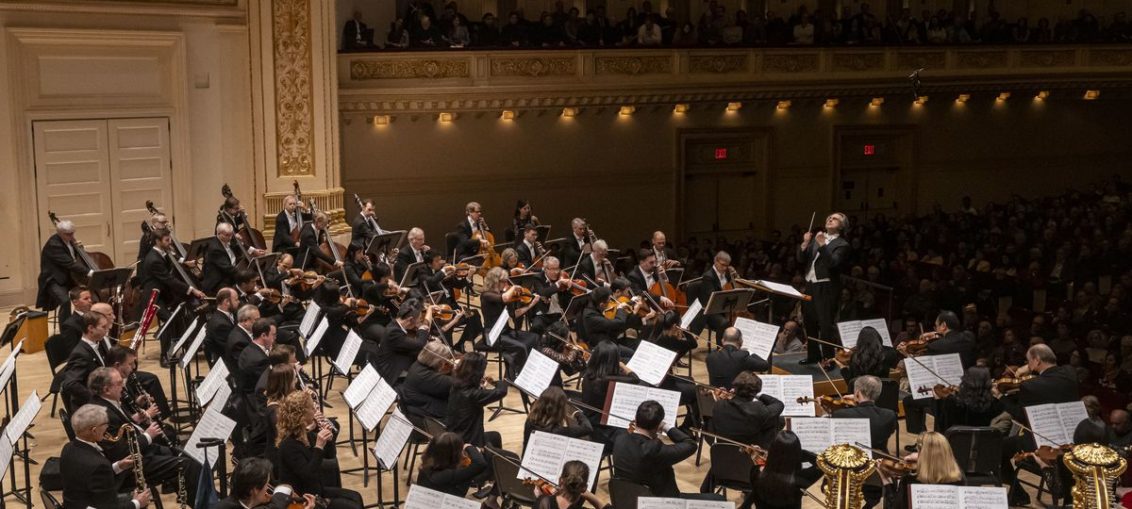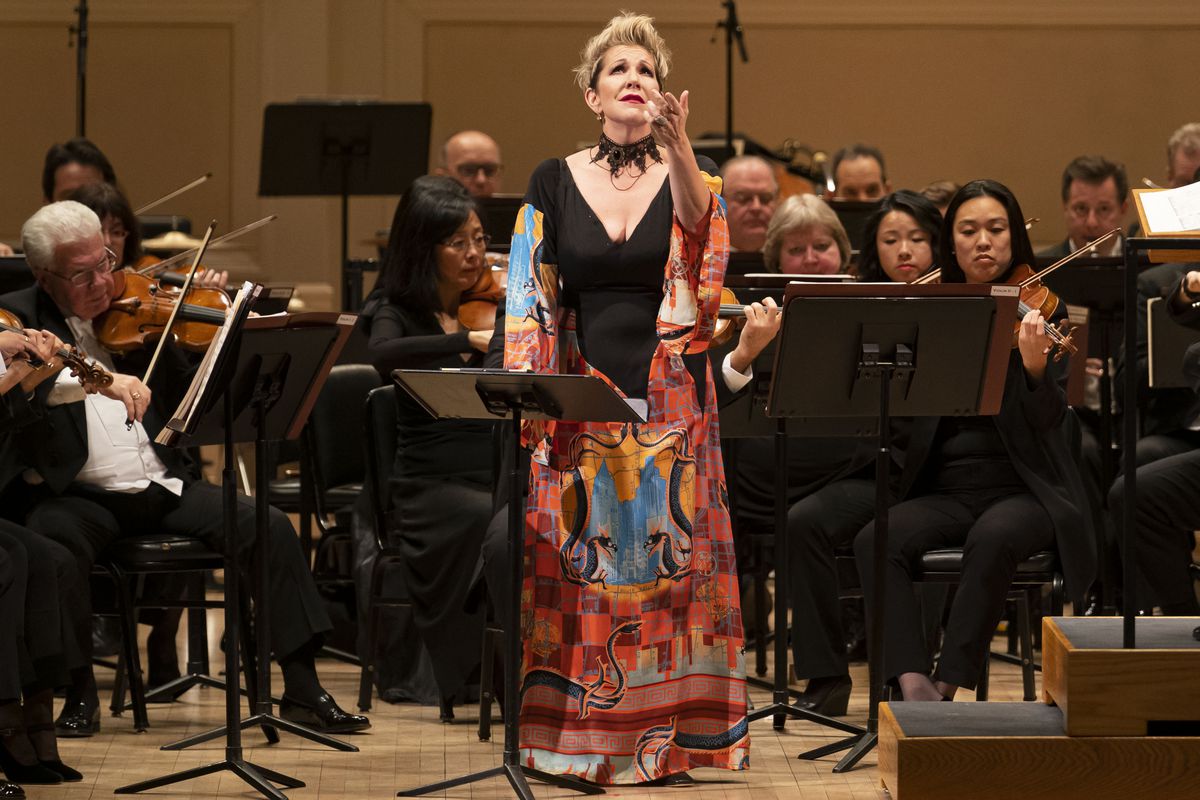
NEW YORK — For classical music lovers within the Big Apple, the vacation feast has come early. Not solely did they’ve the Chicago Symphony Orchestra and music director Riccardo Muti onstage at Carnegie Hall, however the National Symphony is also on the town, and the Boston Symphony, and the Los Angeles Philharmonic, all with hearty musical fare within the days main as much as Thanksgiving. Meanwhile, the New York Philharmonic is at dwelling in its personal corridor, partying in full swing.
The CSO made an impressive impression on this plentiful swirl, with a pair of weekend packages Friday and Saturday that had been beforehand heard in Chicago. The first was the electrifying showpiece for the multi-Grammy award winner Joyce DiDonato, a number one star amongst stars of the opera stage, who had been invited by Carnegie Hall to place collectively a season of specialties underneath a banner known as “Perspectives.” The diva selected to launch her “Perspectives” venture, with the Chicagoans, in a reprise of Berlioz’s spine-chilling tackle Cleopatra’s dying by snake-bite. The second CSO live performance was an all-Prokofiev program of music initially supposed for the stage, together with excerpts from his ballet “Romeo and Juliet.”
Ripped from the headlines of 30 B.C., Berlioz’s “The Death of Cleopatra” catches the queen for the time being she realizes the complete extent of her shame. Her charms had labored on earlier Roman ruler Julius Caesar and Mark Antony, every of whom had turn out to be lovers, however this time she is to be a slave. Her disintegration comes with uncooked cries from the center within the type of a daring and completely unconventional operatic scene for one.
 Joyce DiDonato soars in Berlioz’s “The Death of Cleopatra” cantata with the Chicago Symphony Orchestra on Friday night time at Carnegie Hall in New York.© Todd Rosenberg Photography
Joyce DiDonato soars in Berlioz’s “The Death of Cleopatra” cantata with the Chicago Symphony Orchestra on Friday night time at Carnegie Hall in New York.© Todd Rosenberg Photography
The work appears custom-made for Muti as nicely — a continuous thriller that ends with pulverizing throbs from the orchestra because the queen first succumbs to an asp’s lethal chunk, then endures a grinding orchestral terrain of desperation, with hearbeats gasping and sporadic, till there’s none. Berlioz’s work is nothing lower than Shakespearian in ambition, and the utter stillness in Carnegie Hall put one in thoughts of what occurs towards the tip of a extremely nice efficiency of “Romeo and Juliet.”
A crowd of boosters from Chicago, who attended as a bunch, can’t have missed the irony that this program was the one which introduced an finish to the CSO strike final May, however they had been additionally in a position to witness the orchestra in excellent present form. Disruptive as these months had been, the CSO’s rebuilding underneath Muti has since continued, and the orchestra has not sounded higher in latest reminiscence. This was the ensemble’s first journey right here with three new principals: oboe William Welter, French horn David Cooper and trumpet Esteban Batallán.
Thus Muti’s re-population of key positions, which had come about by pure turnover, is all however full. The brass principals had been performing in Carnegie Hall for the primary time ever; the brass generally had been within the highlight for Resphighi’s “Pines of Rome,” which culminates in a grand crescendo evoking the arrival from a distance of Rome’s triumphal military alongside the Appian Way. A sure-fire finale, its conclusion with clarion calls from brass on either side of the balcony and on the stage introduced the gang to its toes.
Muti’s Rome-themed live performance started with an nearly never-performed work — Bizet’s “Roma,” which was first executed by the Chicago Symphony and its founder Theodore Thomas in Chicago in 1894, and for the primary time at Carnegie Hall in 1911 with Gustav Mahler conducting. One thinks of it from this distance of time as a light-weight piece, however Muti discovered what was undeniably beautiful in it. This “Roma” was the Rome of a French composer charmed by the nation he was visiting. And there was little doubt that within the wild…